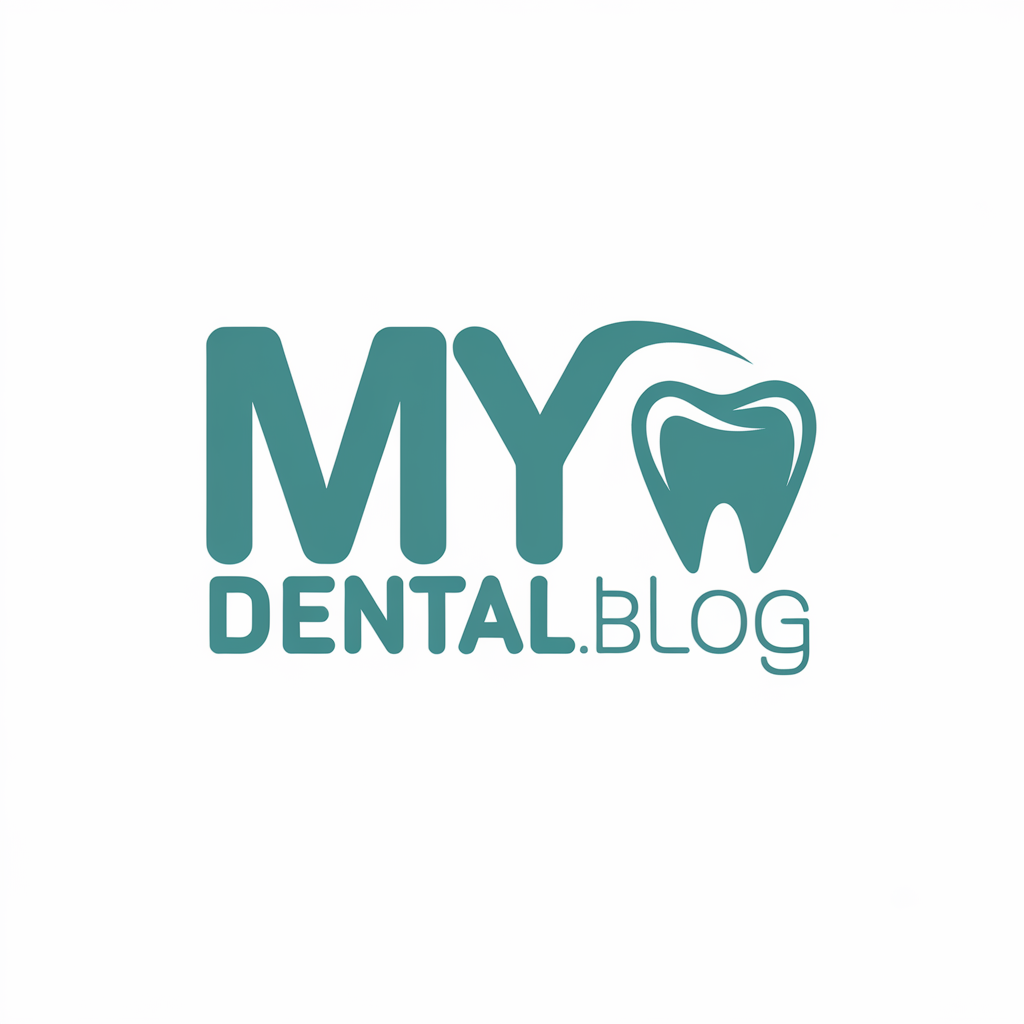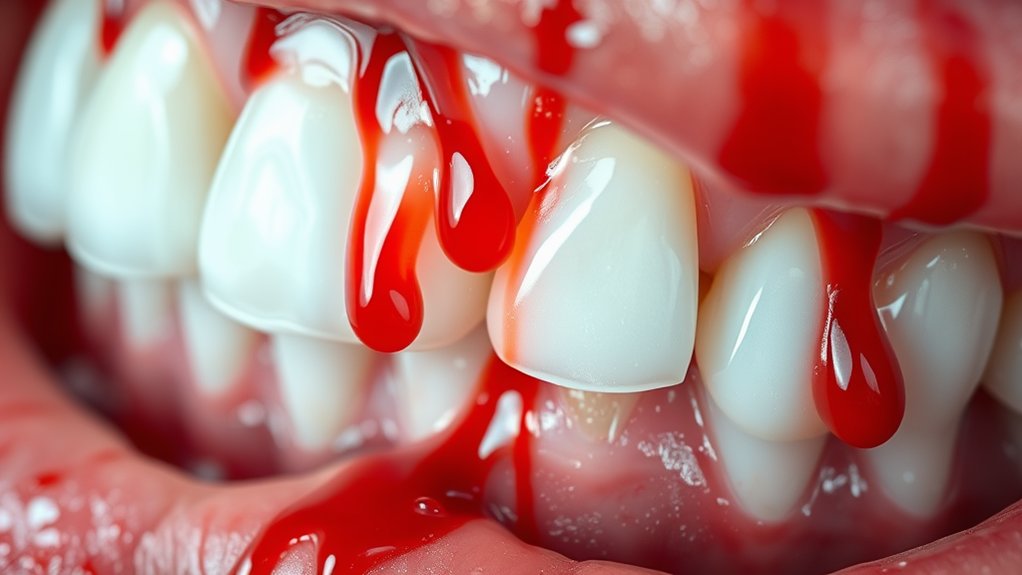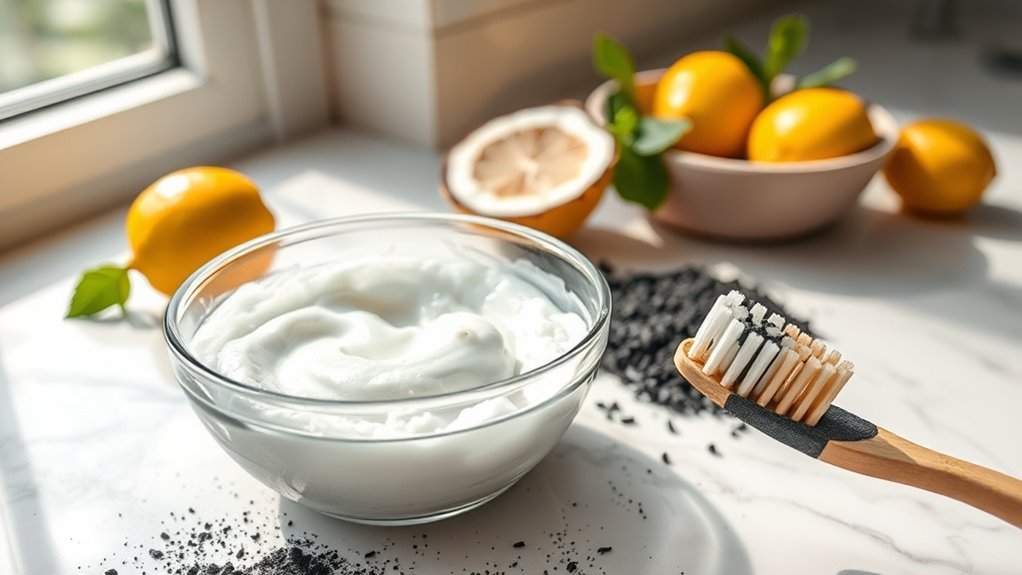Bleeding Gums. Here’s What You Should Do
If you’ve noticed your gums bleeding, it’s important to understand that this could indicate a deeper issue, such as gum disease or nutritional deficiencies. Taking prompt action can alleviate discomfort and prevent further complications. Start with some simple home remedies, but remember, there’s more to maintaining oral health. Stay tuned to discover effective strategies and know when it’s time to seek professional help.
Key Takeaways
- Rinse your mouth with warm salt water to reduce inflammation and soothe bleeding gums.
- Use a soft-bristled toothbrush and floss gently to prevent further irritation to sensitive areas.
- Maintain a balanced diet rich in vitamins C and K to help strengthen your gums.
- Seek professional dental help if bleeding persists or if you experience swelling or pain.
- Schedule regular dental check-ups to detect issues early and maintain overall gum health.
Common Causes of Bleeding Gums
Bleeding gums can be a sign of various dental and health issues. One common cause is gum disease, which develops from plaque buildup and poor oral hygiene.
Hormonal changes, like those during pregnancy or menstruation, can also trigger gum sensitivity and bleeding. Certain medications, particularly blood thinners, may contribute to this problem too.
Nutritional deficiencies, such as a lack of vitamins C and K, can weaken gums. If you notice bleeding, it’s essential to seek advice from a dental professional. They can help identify the underlying cause and suggest effective bleeding gums solutions for your specific situation. Additionally, gum disease can indicate more serious systemic health issues, making prompt attention even more critical.
Practical Solutions for Immediate Relief
When you experience gum bleeding, taking swift action can help alleviate discomfort and prevent further issues. Rinse your mouth gently with warm salt water to reduce inflammation and promote healing. Apply a cold compress outside your mouth to numb pain and ease swelling. Use a soft-bristled toothbrush to carefully clean your teeth, avoiding areas that feel particularly sensitive. Floss gently, too, but be cautious. Over-the-counter analgesics can provide additional relief if needed. Additionally, ensure that you are using soft-bristled toothbrushes to protect your gums while maintaining oral hygiene. If bleeding persists for more than a few days, consider reaching out to a dentist for a professional evaluation and tailored treatment plan.
Importance of Regular Dental Check-ups
Regular dental check-ups are crucial for maintaining your oral health, as they allow for early detection of potential issues before they escalate. By visiting your dentist regularly, you reduce the risk of gum disease, cavities, and other complications. Additionally, proactive dental care is essential for overall well-being.
| Benefits of Check-ups | Frequency | Recommended Action |
|---|---|---|
| Early Detection | Every 6 Months | Schedule an appointment |
| Professional Cleaning | Every 6 Months | Maintain hygiene |
| Personalized Advice | As Needed | Discuss concerns |
Staying proactive about your oral health can save you time, money, and discomfort in the long run. Don’t overlook the importance of these routine visits.
Tips for Maintaining Healthy Gums
To keep your gums healthy, it’s essential to adopt a routine that prioritizes oral hygiene and preventive care.
Brush your teeth twice a day with fluoride toothpaste, ensuring you gently brush along the gumline. Floss daily to remove plaque and food particles between teeth. Rinse with an antimicrobial mouthwash to reduce bacteria.
Maintain a balanced diet rich in vitamins and minerals, particularly vitamin C, which supports gum health. Avoid tobacco and limit sugary snacks to decrease your risk of gum disease. Additionally, remember that hormonal changes can affect gum health, so being mindful of your health during these times is crucial.
Stay hydrated to promote saliva production, which naturally cleanses the mouth and protects your gums from irritation.
When to Seek Professional Help
Noticing persistent bleeding gums can be alarming, and it’s crucial to address the issue promptly.
If your gums bleed regularly when you brush or floss, don’t ignore it. Seek professional help if you experience additional symptoms like swelling, pain, or a bad taste in your mouth. These signs might indicate gum disease or other dental issues requiring immediate attention. Persistent bleeding may signal possible gingivitis or periodontitis, both of which require professional evaluation.
If your bleeding persists despite improved oral hygiene, contact your dentist. Early intervention can prevent more serious complications.
Regular dental check-ups are essential, so keep your appointments up to date to maintain your gum health and overall well-being.





